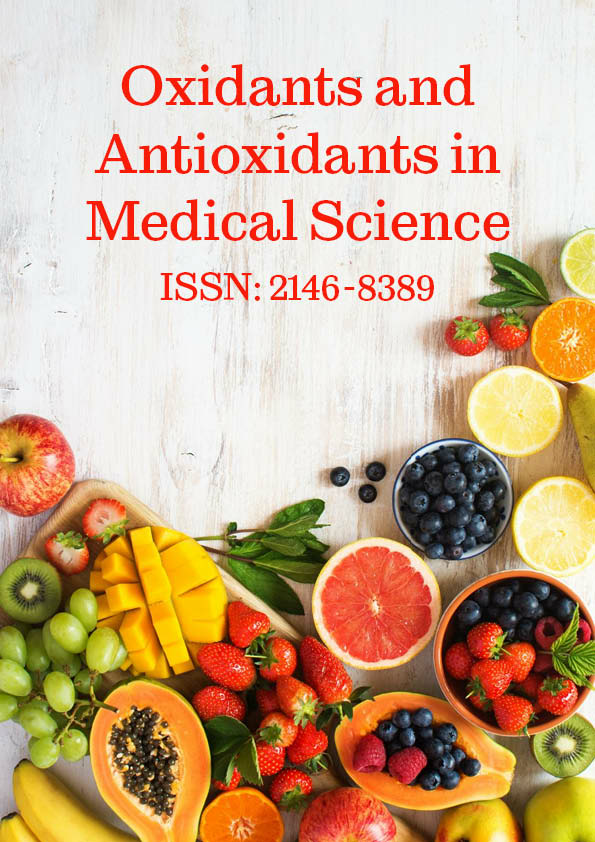Editorial - Oxidants and Antioxidants in Medical Science (2021)
The Overall Health Benefits of Antioxidants Present in Red Wine
Chant Lieu*Chant Lieu, Department of Life Sciences, Nanjing University, China, Email: lieu.chant@nju.edu.cn
Received: 10-Aug-2021 Published: 23-Aug-2021
Antioxidants in Red Wine
Red wine is rich in antioxidants called polyphenols such as resveratrol, catechin, epicatechin and pro-anthocyanidins, while resveratrol and proanthocyanidins are mostly debated over on the health effects of red-wine. The compound, proanthocyanidin is responsible to reduce oxidative damage to the blood vessels and help reduce the incidence of cancer and heart diseases. The compound, resveratrol, is attributed to the more health benefits such as reducing risk of heart disease such as hypertension, atherosclerosis, diabetes-related myocardial infarction, ischemia and unfavorable ventricular remodeling of the diabetic heart by neutralizing free oxygen radicals and modulating the nitric oxide system. This reduces the oxidative stress and inflammation of blood vessels of heart.
Resveratrol is also found to reduce the risk of cancer by being chemo preventive as well as chemotherapeutic. The chemo preventive effect of resveratrol is found in a recent study, resveratrol is found to induce programmed cell death and inhibit the spread of malignant tumor cells in human cervical cancer and pancreatic cancer. The chemotherapeutic effect is enhanced by resveratrol by blocking a transcription factor which makes cancer cells chemotherapy resistant. This inhibition of the transcription factor enhances the effect of chemotherapeutic agents to act on the targeted sites. Resveratrol is found to be protective against nephrotoxicity and radioactivity during chemotherapeutic treatment.
Resveratrol is able to cross the blood-brain barrier and protect the brain nerve cells and is responsible to reduce dementia in elder people. Resveratrol lowers androgen levels of the interstitial cells of ovary in women. Resveratrol is capable of enhancing ovarian follicle reserve and the life span of ovaries. Resveratrol is also responsible to reduce depression, insulin resistance, and type-2 diabetes in women, inflammation and regulating blood lipids. Resveratrol exhibits antibacterial activity by inducing chromosomal DNA damage in the bacteria cells. Thus resveratrol helps in treating bacterial skin infections such as acne. Resveratrol exhibits its antiviral properties by inhibiting the replication of virus, blocking nuclear-cytoplasmic translocation of viral ribonucleoproteins; reducing synthesis of viral proteins and reduction of mRNA. Resveratrol induces apoptosis in fungus by strong antioxidant activity which results in loss of mitochondria potential of fungal cells.
Resveratrol is known to exhibit anti-aging effects by improving the skin elasticity and firmness on dehydrated and wrinkled skin and useful in the treatment of various skin diseases such as eczema and psoriasis. Trans-resveratrol protects the skin from harmful UV rays and skin cancer. The overall formation of acne and comedones will be reduced. Drinking red wine can become a substitute for cosmetics used for skin antiaging.
The moderate intake of red wine daily with an alcohol content of 12% to 15% along with food helps in the overall healthy maintenance of the human body while excessive intake leads to the opposite. Before making red wine as a daily habit, getting a doctor opinion is advised as red wine interacts with some medications. The total drinking limit including wine should be not more than 1-1.5 glasses a day for women and 1-2 glasses a day for men. In old traditions red wine is used to treat headaches, stomach pains and skin diseases.







